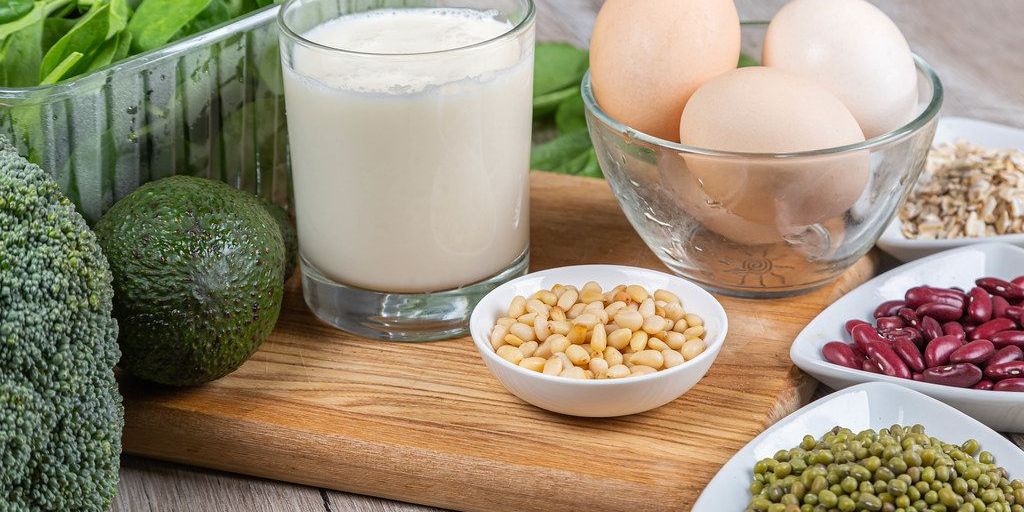Guide to Maintaining a Healthy Weight Through Nutrition
Maintaining a healthy weight is crucial for overall health and well-being. This guide provides comprehensive insights into how nutrition, portion control, and lifestyle choices can help you achieve and maintain a healthy weight. By understanding the principles of nutrition and making informed choices, you can create a balanced diet that supports your weight management goals.
Key Takeaways
- Understanding the difference between portion sizes and serving sizes is key to controlling food intake.
- Incorporating nutrient-dense foods and whole foods into your diet can significantly aid in weight management.
- Regular physical activity, in addition to dietary control, plays a vital role in maintaining a healthy weight.
- Hydration and proper sleep are essential components that often get overlooked in weight management strategies.
- Cooking at home and understanding food labels can empower you to make healthier choices that support weight maintenance.
Understanding Portion Control

Learn the Difference Between Portion and Serving Sizes
Understanding the difference between portion and serving sizes is crucial for maintaining a healthy weight. A portion is the amount of food you choose to eat, while a serving size is a specific measured amount of food. Knowing this can help you better control how much you eat.
Tips for Reducing Portion Sizes Without Feeling Hungry
To reduce portion sizes without feeling hungry, consider using smaller plates and bowls, and focus on filling half your plate with vegetables. Eating slowly and savoring your food can also help you feel more satisfied with smaller portions.
The Role of Portion Control in Maintaining a Healthy Weight
Portion control is a key factor in weight management. By controlling your portions, you can avoid overeating and make room for more nutritious foods in your diet. Here are some tips:
- Use visual cues for portion sizes, like a deck of cards for meats or a tennis ball for pasta.
- Avoid eating straight from the package; instead, serve the amount you plan to eat.
- Be mindful of your eating habits and try to eat without distractions.
Portion control doesn't mean you have to eat tiny portions. It's about eating just enough to feel satisfied.
The Power of Nutritious Foods

Eating nutritious foods is not just about choosing the right things to eat; it's about making smarter food choices that benefit your overall health and help you maintain a healthy weight. Let's dive into how you can harness the power of nutritious foods to your advantage.
Choosing Nutrient-Dense Foods Over Empty Calories
Opt for foods that pack a nutritional punch rather than those that offer little more than calories. Foods rich in vitamins, minerals, and antioxidants, like berries, leafy greens, and nuts, not only provide essential nutrients but also help combat inflammation and oxidative stress. This approach is crucial for disease prevention and maintaining vitality.
How Whole Foods Contribute to Weight Management
Incorporating whole foods into your diet is a game-changer for weight management. Whole foods, such as fruits, vegetables, whole grains, and lean proteins, are naturally lower in calories yet higher in nutrients compared to processed foods. This makes them ideal for feeling full longer and avoiding the calorie overload that can come with processed options.
The Importance of a Balanced Diet in Weight Maintenance
A balanced diet is the cornerstone of sustainable weight management. It ensures that you get a wide range of nutrients necessary for your body to function optimally. Emphasize a variety of food groups in your meals to keep things interesting and nutritionally diverse. Remember, maintaining a healthy weight is not about drastic dietary changes but about consistency and balance in your eating habits.
The Importance of Regular Physical Activity
Integrating Exercise into Your Daily Routine
Incorporating physical activity into your daily routine is not just about hitting the gym; it's about making small changes that add up. Whether it's taking the stairs instead of the elevator, walking your dog, or having a dance break during your workday, every bit helps in maintaining a healthy weight.
The Relationship Between Exercise and Weight Control
Exercise is crucial for not only losing weight but also keeping it off. Regular physical activity helps regulate your metabolism and can achieve stable blood sugar levels, which are vital for weight management. The American Heart Association suggests aiming for 150 to 300 minutes of activity per week to prevent weight gain.
Fun and Effective Exercises for Weight Maintenance
From yoga and swimming to cycling and team sports, choosing activities you enjoy ensures that you stay motivated and consistent. Engaging in a variety of exercises can keep your fitness routine exciting and effective. Remember, the key to weight control is not just the intensity but also the regularity of your workouts.
Smart Snacking for Weight Control
Healthy Snack Ideas to Keep You Full
Snacking doesn't have to be your diet downfall. Choosing snacks that are rich in fiber, protein, and healthy fats can help keep you full and energized. Think of snacks like almonds, Greek yogurt, or fresh fruit paired with nut butter. These options not only satisfy hunger but also provide essential nutrients.
Understanding the Impact of Snacking on Weight
It's important to understand that snacking itself isn't the enemy; it's the type of snacks and the quantity that can tip the scales. Opting for whole, unprocessed foods can make a big difference in how your body responds to snacks. Mindful eating plays a crucial role in making smart snack choices and avoiding mindless eating that can lead to weight gain.
How to Choose Snacks That Support a Healthy Weight
Selecting the right snacks can be a game-changer for weight management. Aim for snacks that balance taste and nutrition. Here are some tips:
- Choose snacks with a good mix of protein, fats, and carbohydrates.
- Avoid snacks that are high in sugar and artificial ingredients.
- Plan your snacks ahead of time to avoid impulsive choices.
Remember, the goal is not to snack less, but to snack smart!
Hydration and Weight Management
The Role of Water in Controlling Weight
Water is not just essential for survival, but it's also a critical component in maintaining a healthy weight. Drinking sufficient water can help boost your metabolism, cleanse your body of waste, and act as an appetite suppressant. Often, our bodies can confuse thirst for hunger, leading you to eat when you are actually just thirsty.
Healthy Beverage Choices for Weight Maintenance
Choosing the right beverages is key to weight management. Opt for water, herbal teas, or diluted fruit juices over sugary drinks. These healthy choices can significantly reduce your calorie intake and help maintain your ideal weight.
How Much Water Should You Drink Daily?
It's recommended to drink 6 to 8 glasses of water daily to prevent dehydration. However, your individual needs may vary depending on your activity level, the climate you live in, and your overall health. Keeping track of your hydration can be as simple as observing the color of your urine—aim for a light yellow color to ensure you're well-hydrated.
Cooking at Home for Weight Control

Benefits of Home-Cooked Meals
Cooking at home offers a fantastic way to control what goes into your meals, ensuring they are healthy and balanced. Preparing your own meals can significantly cut down on hidden calories typically found in processed foods. It also allows you to experiment with nutritious ingredients that enhance both the taste and nutritional value of your meals.
Simple Recipes for a Healthy Weight
Embrace the simplicity of cooking with recipes that don't require exotic ingredients or complicated steps. A focus on fresh, seasonal produce and lean proteins can transform your diet. Here are a few ideas to get you started:
- Grilled chicken with steamed vegetables
- Quinoa salad with mixed greens and nuts
- Stir-fried tofu with a variety of colorful veggies
These simple recipes are perfect for a busy lifestyle and help maintain a healthy weight.
How Cooking at Home Can Prevent Weight Gain
By cooking at home, you're more likely to eat smaller portions and avoid the oversized servings often seen in restaurants. This habit not only helps in weight management but also saves you money. Cooking at home is a proactive step towards a healthier lifestyle, reducing the temptation to opt for fast food and other unhealthy options.
Understanding Food Labels

Navigating food labels is crucial for maintaining a healthy weight and making informed dietary choices. Here’s a breakdown of what you need to know:
How to Read and Understand Nutritional Information
Start by looking at the serving size and the number of servings per container. This will help you understand how much of each nutrient you're actually consuming. Pay close attention to calories, fats, sugars, and sodium as these can greatly impact your weight management goals.
The Importance of Ingredient Lists in Weight Management
Ingredients are listed in order of quantity, from highest to lowest. Look for whole foods and be wary of long lists filled with unrecognizable ingredients. This can be a red flag for highly processed foods that might not support your weight control efforts.
Decoding Health Claims on Food Packaging
Be skeptical of claims like ‘low-fat' or ‘high in fiber'. These can be misleading and may not always reflect the overall nutritional value of the food. It's essential to look beyond the claims and understand the actual nutritional content.
Remember, the more you know about what's in your food, the better choices you can make for your health and weight management.
The Impact of Sleep on Weight

How Lack of Sleep Can Lead to Weight Gain
Getting enough sleep is crucial for maintaining a healthy weight. Inadequate sleep often leads to increased appetite and cravings for high-calorie, sugary foods to compensate for low energy. This can create a cycle of poor sleep and poor dietary choices, ultimately leading to weight gain.
Tips for a Better Night's Sleep
To ensure a restful night, consider establishing a calming bedtime routine and sticking to a consistent sleep schedule. Avoid caffeine and electronics before bed, and create a comfortable sleep environment. These steps can significantly improve your sleep quality and support weight management.
The Connection Between Sleep Quality and Metabolism
Sleep plays a vital role in regulating metabolism. Poor sleep can disrupt your body's ability to process insulin, which can lead to weight gain and increased risk of diabetes. Improving your sleep quality can help maintain a healthy metabolism, aiding in weight control.
Stress Management and Weight Control

How Stress Affects Your Weight
Stress can significantly impact your weight management efforts. When stressed, many people tend to stress-eat or choose unhealthy snacks, which can lead to weight gain. By understanding how stress influences your eating habits, you can develop strategies to maintain a healthy weight even during stressful times.
Effective Stress Reduction Techniques
To effectively manage stress, consider incorporating techniques such as mindfulness, meditation, or regular physical activity into your daily routine. These practices not only help in reducing stress but also support overall health and weight control.
The Role of Mindfulness in Weight Management
Mindfulness can be a powerful tool in managing your weight. It involves being fully present and engaged in the moment, which helps in making more conscious food choices and avoiding mindless eating. This awareness can lead to better portion control and a more satisfying eating experience without overindulgence.
The Role of Community in Weight Management

Finding Support Groups for Weight Loss
Engaging with support groups can significantly enhance your weight management journey. These groups provide not only emotional and motivational support but also practical tips and shared experiences that can be invaluable. Finding the right group that matches your needs and personality is crucial for sustained participation and benefit.
The Benefits of Social Interaction on Weight Control
Social interactions within a community or group setting can lead to more successful weight management. Regular meetings or check-ins can help maintain motivation and accountability. The encouragement from peers often leads to better adherence to weight loss plans.
How to Engage with a Community for Better Health
To effectively engage with a community, start by identifying local or online groups that focus on healthy living and weight management. Participate actively and consistently to reap the full benefits. Networking with others who have similar goals can provide a boost to your own efforts and help maintain your motivation over the long term.
Navigating Eating Out While Maintaining a Healthy Weight

Eating out doesn't have to derail your weight management goals. With a few smart choices and strategies, you can enjoy dining out without guilt and stay on track.
Choosing Healthy Options at Restaurants
Start by selecting dishes that are rich in vegetables, lean proteins, and whole grains. Opt for grilled, baked, or steamed options instead of fried. Be mindful of portion sizes and consider sharing a meal or taking half to go.
Tips for Portion Control When Dining Out
It's easy to overeat in a restaurant setting where portions are often oversized. Ask for a half portion or a to-go box right away to manage how much you eat. Focus on enjoying the meal and the company, not just the food.
How to Enjoy Social Eating Without Guilt
Social gatherings often center around food, making it easy to overindulge. Plan ahead by checking the menu online and decide what you'll order in advance. Allow yourself to enjoy special occasions without stressing over every calorie. Moderation is key, and it's perfectly fine to indulge occasionally while maintaining a healthy lifestyle.
Seasonal Eating for Weight Management

Benefits of Eating Seasonally
Eating seasonally not only supports local farmers but also provides your body with the freshest and most nutritious produce available. Seasonal foods are often richer in vitamins and minerals, which are crucial for maintaining a healthy weight and overall wellness.
How to Incorporate Seasonal Foods into Your Diet
Start by visiting local farmers' markets or subscribing to a CSA (Community Supported Agriculture) box. This way, you can ensure you're getting a variety of fresh, seasonal produce. Experiment with new recipes that highlight the unique flavors of each season.
Seasonal Recipes for a Healthy Weight
Cooking with seasonal ingredients isn't just healthy; it's also more flavorful and satisfying. Here are a few simple recipes to get you started:
- Spring: Fresh pea and mint soup
- Summer: Grilled vegetable and quinoa salad
- Autumn: Roasted squash and kale salad
- Winter: Hearty vegetable stew
Eating seasonally can help you maintain a healthy weight by keeping your meals diverse and nutritionally balanced.
The Role of Supplements in Weight Management

When to Consider Supplements
Supplements can be a helpful addition to a diet, especially when specific nutrient deficiencies are hard to cover through food alone. Always consult with a healthcare provider before starting any supplement regimen to ensure it aligns with your health needs and weight management goals.
Choosing the Right Supplements for Weight Control
It's crucial to choose supplements that support your weight management safely and effectively. Look for those that have scientific backing and are free from excessive stimulants or unproven ingredients. Quality is key in selecting supplements that can genuinely benefit your health.
The Truth About Weight Loss Supplements
While some supplements can aid in weight management, they are not magic pills. Effective weight management involves a balanced diet, regular physical activity, and proper sleep. Supplements should only be considered as a supportive measure, not a solution on their own.
Conclusion
Maintaining a healthy weight is not just about short-term dietary changes; it's about developing a sustainable, enjoyable lifestyle. Remember, every small step towards eating well and understanding your body's needs counts towards a healthier you. Embrace the journey with optimism, and don't hesitate to incorporate colorful, nutritious foods and smart eating habits into your daily life. Keep it simple, stay informed, and most importantly, be patient with yourself as you strive for a healthier, happier body.
Frequently Asked Questions
What is the difference between portion and serving sizes?
Portion sizes are the amount of food you choose to eat, which can vary greatly. Serving sizes are standard measurements used on nutrition labels to help guide healthy eating.
How can I reduce my portion sizes without feeling hungry?
You can reduce portion sizes by eating slowly, drinking water before meals, using smaller plates, and including fiber-rich foods in your diet to help feel fuller.
What are nutrient-dense foods?
Nutrient-dense foods provide high levels of vitamins and minerals with relatively few calories. Examples include fruits, vegetables, lean proteins, and whole grains.
How does regular physical activity help in maintaining a healthy weight?
Regular physical activity helps burn calories, boost metabolism, and can alter hormone levels in a way that supports weight loss and maintenance.
What are some healthy snack ideas to help maintain weight?
Healthy snacks include fresh fruits, vegetables with hummus, nuts, and low-fat yogurt. These snacks are satisfying and nutrient-rich.
How does hydration affect weight management?
Staying hydrated helps maintain your metabolism and aids in appetite control. Sometimes thirst is confused with hunger, so drinking water can prevent overeating.
What should I look for on food labels to help maintain a healthy weight?
Focus on foods with low levels of added sugars and high fiber content. Check the serving size and calorie amount to help manage portion control.
How can sleep impact weight management?
Lack of sleep can disrupt hormones that regulate appetite and metabolism. Getting enough sleep can help maintain a healthy weight by regulating these hormones.
